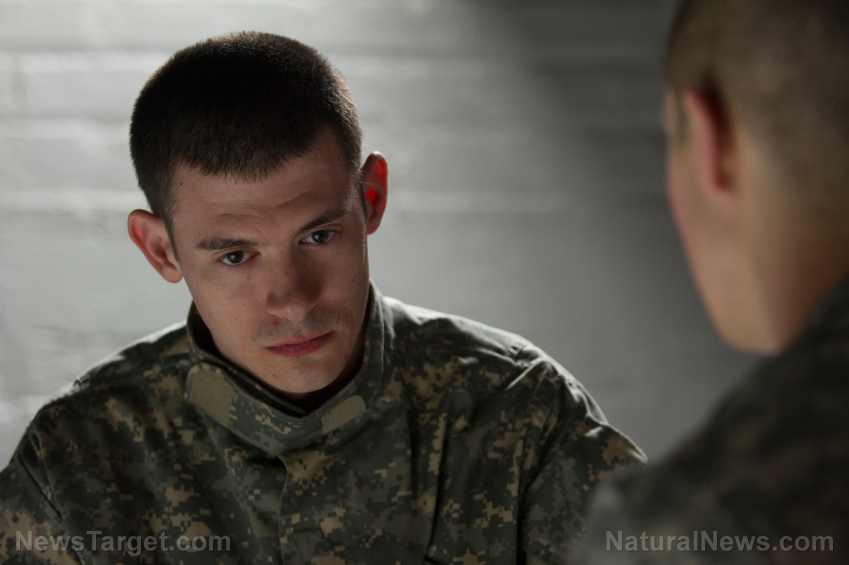Non-traditional therapy: How horses help heal veterans with PTSD
12/01/2017 / By Janine Acero

Animals have been constant companions to humans for a long time. They have helped us in many ways from guiding physically challenged persons to cuddling with us on the couch. Now, an alternative therapy for managing and easing PTSD in war veterans is being practiced, with the help of rescued and retired horses.
Post Traumatic Stress Disorder (PTSD) is a serious condition that affects a person’s everyday life — from work and personal relationships to general interaction with the outside world. This is especially prominent in war veterans who are back to living civilian lives.
PTSD is the signature disorder of many returning war veterans. Statistics show that up to 30 percent of veterans are affected by PTSD. In the United States, 18 percent of all reported suicide incidents are war veterans, with 20 veterans dying by suicide each day.
Traditional therapies can be taxing to veterans, as they are asked to recall their deepest traumas, which leads to patients abandoning their sessions. Researchers at the Columbia University Medical Center in New York City and Ambassador Earle I. Mack, a veteran of the U.S. Army and equine aftercare advocate, have come up with a solution to provide better treatments for veterans with PTSD, called the Man O’War Project.
This project is the first and only university-led clinical research trial to determine the effectiveness of equine-assisted therapy (EAT) for veterans with PTSD. It has produced the first-ever standardized manual for the application of EAT and is currently testing it with groups of veterans at an equine center in Leonia, New Jersey.
The veterans with PTSD interact with the therapy horses under the supervision of trained mental health therapists and equine specialists. These ground-based interactions help the patients get re-accustomed to vital life skills by understanding how their emotions and behaviors impact the horses, which will reflect how they impact other people around them.
Veterans and horses have many things in common that make them perfect partners for therapy. For one, their senses are more sensitive to activity than most: veterans because of their service in combat zones; horses because they are prey animals by nature. Moreover, horses are more sensitive to human emotion and behavior, sending cues from humans so they can better communicate with each other.
The EAT is also helpful to the horses themselves as well as the veterans. They both share a “mission mentality” where they go about every day with a purpose in mind. Soldiers have been trained to go from one mission to another, with one goal in mind every mission. The same goes for horses who are “beasts of burden” and horses that are bred for racing – they need a new purpose after they retire.
The clinical results of the project have been positive, with veterans easing up to simply enjoy their time with the horses instead of being asked to recall their deepest traumas, such as in a traditional set-up. With EAT, the veterans can focus on understanding the horses’ behavioral cues and being aware of their own emotions and behaviors.
One of the patients, an army veteran who was deployed in Iraq, has learned to manage his negative emotions after undergoing the therapy. Another veteran even managed to enroll in a computer class and re-learn to interact with the outside world, thanks to the project.
The researchers believe that clinical trials like the Man O’War Project will help foster better understanding about how horses help veterans with PTSD and how EAT should be applied. This could push such therapies to become a better alternative for the veterans to get the treatment they deserve.
Sources include:
Tagged Under: alternative treatments, Anxiety, emotions and behavior, equine-assisted therapy, health care, horse therapy, horses, mental health, military service, nonverbal cues, post traumatic stress disorder, PTSD, PTSD therapy, research, veterans health care, war veterans




















